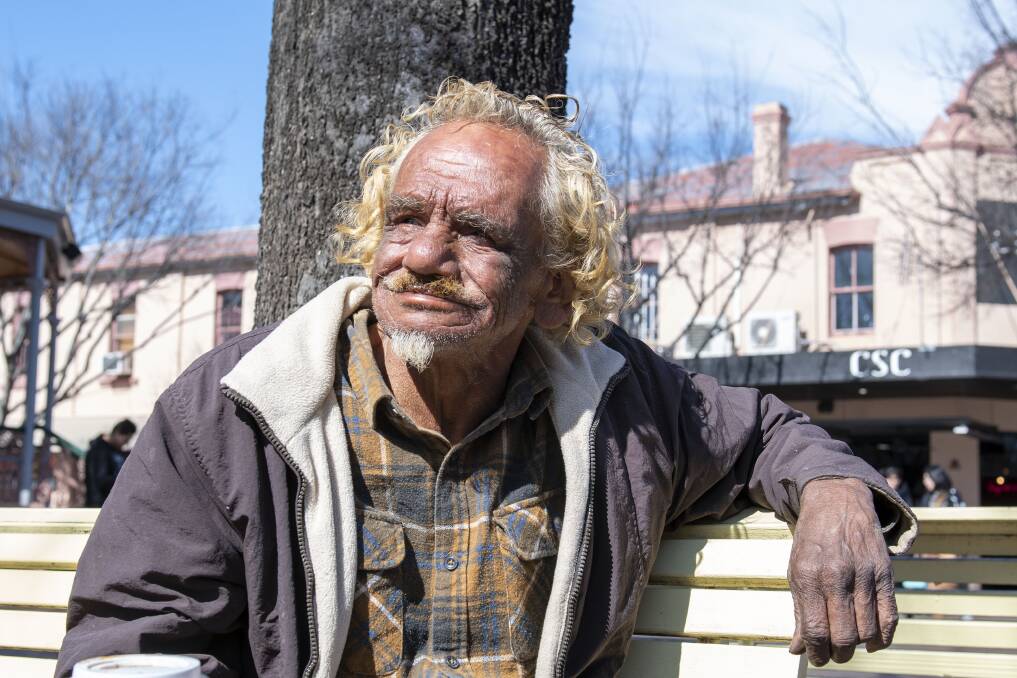
Wiradjuri elder Frank Doolan doesn't need data to know Indigenous people are disproportionately targeted by local police; he's experienced it himself and heard the stories young people in the community share.
Subscribe now for unlimited access.
or signup to continue reading
"With any figure, a good statistician can make it do backflips if they want to - so the figures can either tell a story or lie. I've done my homework - I've checked in community and with community, and I have accounts of things happening," he said.
"I talk to the children, they tell me things. I talk to the people who care for them, they tell me stuff. People have anecdotes and stories about their interactions with police and in the main, they're all bad."
Mr Doolan, a community worker and long time advocate for at-risk youth in Dubbo, said he's heard stories of groups of young Indigenous people being pulled up by police for reasons as minor as being out after dark or wearing black clothing - a treatment he says is akin to "public humiliation".
"I have never seen a group of white kids in this city pulled up en masse while a couple of cops - with cannons on their hips and notebooks - take down their names and addresses in the main street under the guise of crime prevention," he said.
"Do they assume every aboriginal kid who's on the street between dusk and dawn is a potential criminal? If they do, that displays not only latent racism but a lack of insight and education into the situation."
"If you think the only thing Aboriginal youth are capable of is a good career in criminal pursuits then that's so wide off the mark that it isn't funny."
I talk to the children, they tell me things. I talk to the people who care for them, they tell me stuff. People have anecdotes and stories about their interactions with police and in the main, they're all bad.
- Frank Doolan
Last month, NSW Police data acquired by the Redfern Legal Centre revealed Dubbo is the regional town where police conducted the most strip searches over a two-year period, with 80 in total. It was also the place where the highest number of strip searches were conducted on Indigenous people out of anywhere in the state.
More than 50 percent of all strip searches in Dubbo were on Indigenous people despite Indigenous people making up just 16 percent of the population.
"It's highly invasive and, under the law, police are meant to meet quite a high threshold in terms of seriousness and urgency. Even having suspicion of minor drug possession doesn't meet that high threshold," explained Redfern Legal Centre senior police accountability solicitor, Samantha Lee.
"We need police to look at these hotspots that we've identified through the data - like Dubbo - and speak to the lead area commanders and try to address this problem."
Asked for comment about why there were so many strip searches conducted in Dubbo and why so many were on Indigenous people, Assistant Commissioner Scott Whyte laid out the policy around "search and move-on" orders and said NSW Police "won't be commenting further" on the matter.
Josh Pallas, president of NSW Council for Civil Liberties, said the lack of engagement from police on the issue is "unsurprising" but "not good enough".
"They should be held accountable and they should provide justifications - if there are any. If they don't, the only option that can really remain is that there is no justification. Especially when there are stats which appear on their face - absent any reason that stands up to scrutiny - to demonstrate racist over policing," he said.
The strip search data is just one example of the "problematic" way police engage with First Nations people across the state, said Mr Pallas.
"In NSW, 40 percent of the youth detention population are Aboriginal. Whether it's from a point of entry to the criminal justice system, like a stop and search, or right through to the pointier end where they're ending up in detention, there's an overrepresentation of First Nations people," he said.
Mr Doolan agrees it's not an isolated or new issue - "people in community both here and all over the greater west - and in urban communities the length and breadth of this country - have been talking about these very issues for decades," he said.
Mr Doolan acknowledged local police have done some good work bringing in initiatives to build better relationships between police and Indigenous youth, like Project Walwaay and the PCYC. He also said many of the senior staff and uniformed officers have a positive relationship with the community.
However, he said there's a lot more work to be done.
"I live in the belief that in every new day there's a chance for a fresh start and renewed hope. And for as long as I draw breath I will represent the people without a voice. I'll represent and speak for the first peoples and I will speak the loudest for our youngest and most vulnerable," he said.
"They are our future, and, despite the racist attitude of some detectives in this city, we have shown by virtue of who we are and the road we've come down that we have the ability to endure and to survive."
"Please, don't continue to criminalise our kids."
Our journalists work hard to provide local, up-to-date news to the community. This is how you can continue to access our trusted content:
- Bookmark
- Make sure you are signed up for our breaking and regular headlines newsletters
- Follow us on Twitter
- Follow us on Instagram
- Follow us on Google News

